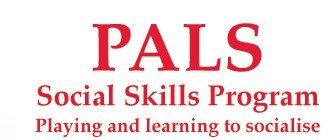Our Programme
The Early Years Foundation Stage (EYFS 2012) sets the standards for learning, development and care for all children
from birth to five. It is divided into 2 sections:
- Characteristics of effective learning
- Prime & Specific areas
The Characteristics of effective learning
- Playing & exploring
- Active learning
- Creating & thinking critically
The following is a summary of the Prime and Specific areas, and more information can be found in our prospectus.

Personal, Social & Emotional Development
- Children will be encouraged to become more independent
- Encouragements given to taking turns and share, thinking of others and how they are feeling
- Praise and encouragement will be given for every achievement no matter how small, to help the children develop their sense of self-worth and their ability to achieve
- Children are also encouraged to interact with each other and with adults – this can be in a one-to-one, small or large group situation

Communication & Language
- Children’s skills are helped by all aspects of everything we do at pre-school: talking to each other or with an adult, role playing
- Rhymes and songs, listening to stories, to each other, playing games
- Discussing what they are doing, want to do, have been doing

Physical Development
- During their time at pre-school, children will develop their strength, stamina, move from large clumsy movements to smaller, more controlled movements
- Discover whether they are right or left handed and become aware of their ability/disability
- They will take part in activities which give the opportunity to develop their ability to – balance, jump, hop, ride, climb, throw and catch, travel at differing speeds, control their movements, be aware of space
- They will also have the opportunity to develop increasing skill and co-ordination in the use of their fine motor skills

Literacy
- Firm foundations for success are established by participation in a variety of activities including: puzzles, drawing, colouring, painting, handling of books, word recognition – their own names, days of the week, familiar text

Maths
- Children’s mathematical abilities are developed through many activities at pre-school: register time, puzzles, number games, counting rhymes and songs, table activities, shape recognition, sorting objects by colour, size, shape, function, etc, number recognition, counting, sequencing, comparing, calculating, weights and volume

Understanding of the World
- This is the area which covers a multitude of knowledge – concepts, substances, observing their world
- This can be done through a range of activities or themes, travel/transport, magnets, cogs and gears, how things work, changes in the weather, seasons and begin to think about past, present and future

Expressive Arts and Design
- Creativity allows children to express their feelings, think for themselves, use their imagination in make believe worlds, create ideas and their own characters, and gives them a sense of making a contribution
- Creativity applies to both expressive (role) play and art and craft activities
- Using their imagination will also help them with reading activities such as – ‘what do you think will happen now?’ or by looking at the pictures they may be able to offer ideas

Phonics
Each day the children due to join mainstream school join a phonics group looking at letter sounds, rhythm, rhyme, alliteration, oral blending and segmenting.

Playing and Learning to Socialise skills programme (PALS)
This is an educational research based resource. During their time at preschool all children will take part in PALS. It teaches children about greeting others, listening, sharing, and taking turns. How to deal with feelings of fear, sadness, anger and problem solving.

Additional Activities
We have a termly planned music, song & dance session, and football session which are led by qualified instructors. Cooking activities involve 2 or 3 children on a weekly basis, who help to prepare and make an item for snack time to share with their friends. Whenever possible children help to prepare their own snacks and they also help to clear the table.
